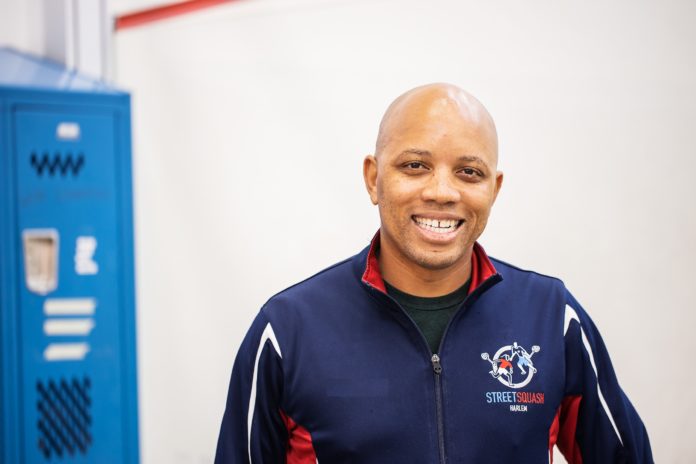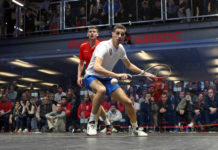Chief Squash Officer, StreetSquash
When I first came to the U.S. in 2005, I could not believe how cold it was. The cars seemed so big. After arriving at Trinity, where I was headed for school and to play squash, I was shocked by how beautiful the campus was. Not much has changed since those first days in the U.S. Trinity is still beautiful, cars are still just as big and I’m still never quite prepared for winter.
Coach Paul Assaiante deserves a lot of credit for exposing the U.S. collegiate community to the prowess of international players. It’s impossible to ignore the positive impact this influx of international players has had on U.S. squash, particularly in the world of hardball doubles and in the ways college teams approach player recruitment. I’d like to think my Trinity teams could still hold their own and perform well enough to make it to the collegiate finals, mostly because of the depth of talent on our roster and the competitive edge that comes with being such a close-knit team. We were brothers, then and always.
The biggest difference at all the places I’ve worked—Cross Courts in Boston, Apawamis in Rye and now StreetSquash in New York—has been access to resources. I see StreetSquash as a blend of those other two places, and so much more. At StreetSquash, I am one of thirty employees across two sites in Harlem and Newark. Our mission is to provide participants with the highest standards of instruction, which allows them to realize their academic, athletic and personal potential. As someone who had doors opened for me when I moved to the U.S. to play squash at Trinity, I feel it’s my responsibility to now do the same for others—especially in historically exclusive spaces like squash.
One major way StreetSquash stands apart from other programs is The Squash Academy. It is a fee-based program that offers top junior players squash instruction and runs junior tournaments at the StreetSquash facility in Harlem. My hope is that The Squash Academy will naturally integrate top StreetSquash players with other athletes from the greater squash community, providing both athletic and academic opportunities to StreetSquash participants that might otherwise be inaccessible. Integration also helps attract top coaches, who can then assist our staff and help elevate our training sessions.
I’m proud of all of the U.S. pro players. The women and men are achieving amazing results for Team USA recently—just look at the Pan American Games last summer. It’s been rewarding seeing some of the same players I’ve coached on the junior national team achieve success for the U.S. on the senior level. There’s nothing like playing for your country, especially at this moment when Team USA is earning a global reputation as a real contender for titles. I love competing as an individual, but coaching as part of Team USA has a special spark that doesn’t exist elsewhere.





